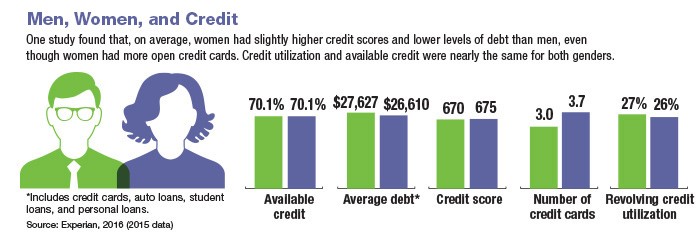2.8.18
When a saver marries a spender, every penny counts

If you’re a penny pincher but your spouse is loose with the family purse strings, money arguments may frequently erupt. Thinking of yourselves as two sides of the same coin might help you appreciate your financial differences.
Heads or Tails, Saver or Spender
If you’re a saver, you like having money in the bank, investing in your future, and saving for a rainy day. You probably dislike credit-card debt and spend money cautiously. Your spender-spouse may seem impulsive, prompting you to wonder, “Don’t you care about our future?” But you might come across as controlling or miserly to your spouse who thinks, “Just for once, can’t you loosen up? Let’s enjoy life now!”
Such different outlooks can lead to resentment. But are your characterizations fair? Money habits may reflect how both of you were raised and your personal experiences. Being a saver or a spender might also just come naturally. Instead of assigning blame, try to see your spouse’s point of view.
A Penny for Your Thoughts?
Start by discussing your financial values. Sometimes couples avoid talking about money because they are afraid to argue. But talking honestly and openly may actually help you and your spouse avoid conflict. Scheduling regular money meetings could help you gain a better understanding of your finances and provide a forum for handling disagreements. Don’t assume you know what your spouse is thinking — ask and be willing to negotiate. Here are some questions to get started.
•What does money represent to you? Security? Freedom? The opportunity to help others?
• What are your short-term and long-term savings goals?
• How much money is coming in and how much is going out? Never assume that your spouse knows as much about your finances as you do.
• How comfortable are you with debt, including mortgage debt, credit-card debt, and other loans?
• What are your feelings about spending on others? Do you agree on how much to give to your children or spend on gifts to family members, friends, or charities?
• What rules would you like to apply to purchases? One option is to set a limit on how much one spouse can spend on an item without consulting the other.
• Would you like to set aside some discretionary money for each of you? Then you would be free to save or spend those dollars without having to justify your decision.
Once you’ve explored these topics, you can create a budget or spending plan that reflects your financial personalities. You might make savings an ongoing “expense” and allow room in the budget for unexpected expenses. Track your progress. Regular meetings to go over your finances may enable you to celebrate your successes or identify areas where you need to improve. Be willing to make adjustments if necessary.
Finally, recognize that getting on the same page is going to take some work. When you married, you promised to love your spouse for richer or poorer. Maybe it’s time to put your money where your mouth is — you both may be richer for it!
If you’d like to take a different approach to investment planning and management, you can meet with one of our CFS* financial advisors. We will review your finances at not cost or obligation, explain your investment options, and help you find the right products for your needs. For your complimentary consultation, please schedule an appointment with a CFS* Financial Advisor at Consumers Credit Union by calling Micki at 269.488.1776. The investment services team can provide strategies to help fit your ever-changing needs.
The information is not intended as tax, legal, investment, or retirement advice or recommendations, and it may not be relied on for the purpose of avoiding any federal tax penalties. You are encouraged to seek advice from an independent professional advisor. The content is derived from sources believed to be accurate. Neither the information presented nor any opinion expressed constitutes a solicitation for the purchase or sale of any security. This material was written and prepared by Broadridge Advisor Solutions. © 2017 Broadridge Investor Communication Solutions, Inc.
* Non-deposit investment products and services are offered through CUSO Financial Services, L.P. (“CFS”), a registered broker-dealer (Member FINRA/SIPC) and Registered Investment Advisor. Products offered through CFS: are not NCUA/NCUSIF or otherwise federally insured, are not guarantees or obligations of the credit union, and may involve investment risk including possible loss of principal. Investment Representatives are registered through CFS. Consumers Credit Union has contracted with CFS to make non-deposit investment products and services available to credit union members.


